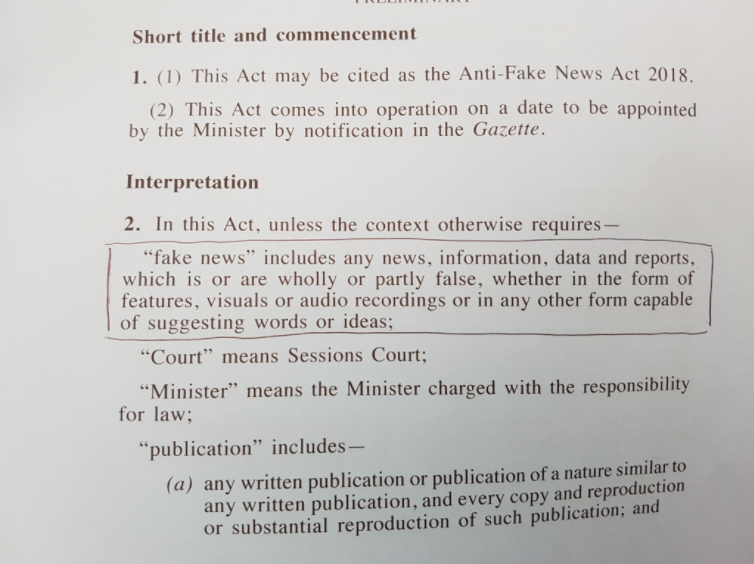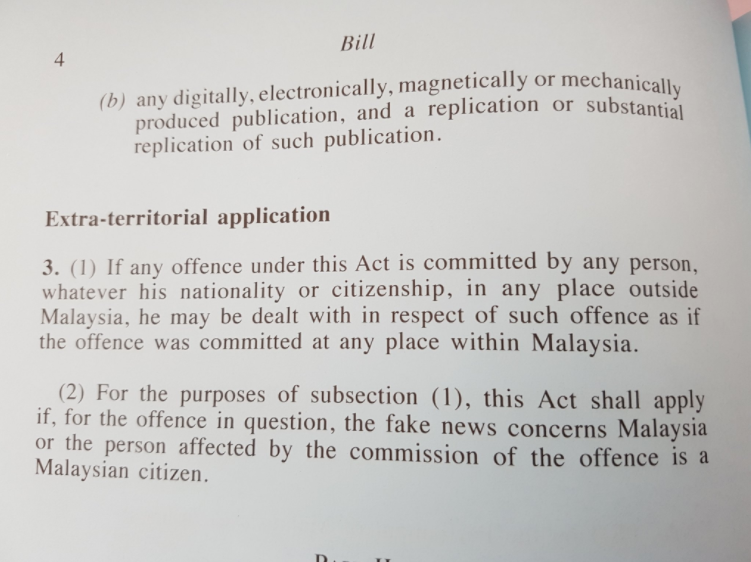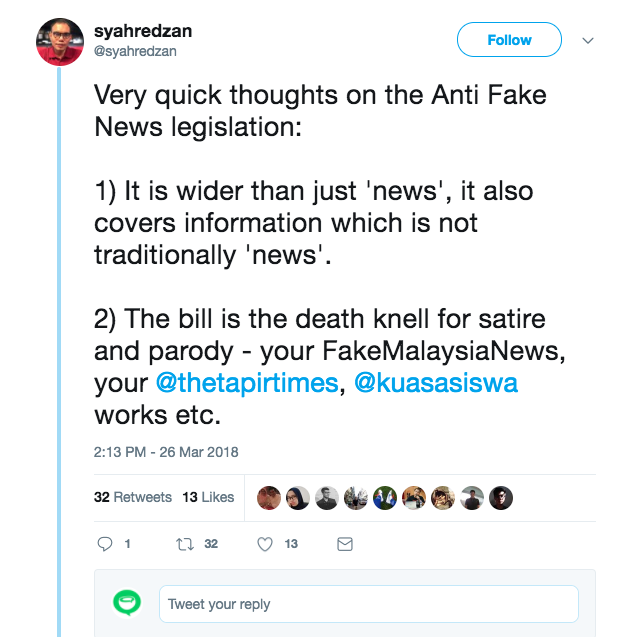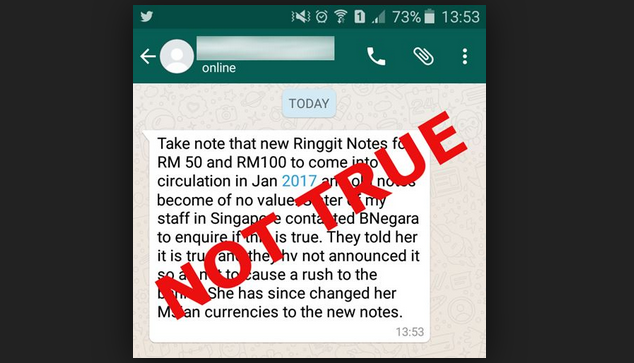An Anti-Fake News Bill is currently under discussion by the government, and would carry a maximum fine of RM500,000 (US$128,000) and/or 10 years imprisonment for anyone who creates or knowingly publishes or spreads fake news.
If you’re wondering what constitutes “fake news” these days, according to the bill, it includes any news, information, data and reports, which is or are wholly or partly false, whether in the form of features, visuals or audio recordings in any other form capable of suggesting words or ideas.
“Any person who by any means, knowingly creates, offers, publishes, prints, distributes, circulates or disseminates any fake news or publication containing fake news commits an offense and shall on conviction be liable to a fine not exceeding RM500,000 or to imprisonment not exceeding 10 years or both.
“In case of a continuing offense, a further fine not exceeding RM3,000 for every day during which the offense continues after conviction,” the Bill stated.

If you suspect that the wording might be a tad nebulous, you’re not alone. Opposition Democratic Action Party (DAP) MP for Serdang, Ong Kian Ming, tweeted several points of inquiry, among them, whether or not something as banal as spreading fake news about free supermarket gifts could be considered a criminal act, and — crucially — who exactly gets to define what news is wholly false or just partly.


Good questions, because we’re not sure what a half-lie is either.
Another measure included in the bill defines the law’s reach. It specifies that the new legislation is applicable to anyone of any nationality, residing in Malaysia or outside.
Ong Kian Ming asked if the law would be applied to foreign journalists investigating say, 1MDB.


Last week, Deputy Communications and Multimedia Minister Jailani Johari said in parliament that any information or news related to 1MDB that does not have the endorsement of the government will be treated as “false information.”
1MDB, the wart that just won’t go away, has seen Prime Minister Najib dogged by accusations of misappropriations from the fund, intended for Malaysia’s economic development, yet with the money allegedly ending up in the personal coffers of some of his closest associates.
According to The Washington Post, the U.S. Justice Department says at least US$4.5 billion was stolen from 1MDB by associates of Najib, and it is working to seize $1.7 billion taken from the fund to buy assets in the U.S., potentially its largest asset seizure ever.
As information that is not officially recognized by Malaysian government officials (like Israel?), this would technically qualify as fake news under the bill. Take note, WaPo.
The term “alternative fact” (pretty much “fake news”) was popularized by the Trump administration’s Kellyanne Conway, who used the phrase when faced with the paltry number of attendees at the president’s inauguration after his press secretary gave the press an inflated figure.
The watershed moment between actual reality and Trump’s version of it was enough to make half the world look at each other and ask “Is bold-faced lying a thing now?” Newsflash: It’s not, nor should it have any place in our daily news feed.
While filtering out falsehoods is a seemingly noble pursuit, the potential for abuse when it’s a sitting government is deeply troubling to lawmakers like Ong Kian Ming.
“This is an attack on the press and an attempt to instill fear among the (people)” before the general election, the DAP lawmaker tweeted.

The government, meanwhile, insists that the law is intended to protect public harmony and national security (honestly, any history buff’s two most-worrying excuses).
History is rife with laws promoted as ensuring national security being used for nefarious or authoritarian purposes.
Germany’s Enabling Act of 1933, which essentially sowed the seeds for National Socialism to flourish; America’s Patriot Act provisions that allowed for overreaching government mass surveillance on the general public; and finally Malaysia’s own Internal Securities Act, put in place to ensure cohesive race relations after the 1969 riots, but used by then-Prime Minister Mahathir in the late ’80s to imprison political rivals. Coincidentally, they’re running on the same ballot this General Election. The more things change …
The bill is currently being pushed through parliament at warp speed, according to concerned watchdog groups, with some claiming that the public has not been properly briefed as to the bill’s details prior to its ratification.
Quick question — where does this law leave cheeky news with the occasional garnish of satire? Asking for a friend.





